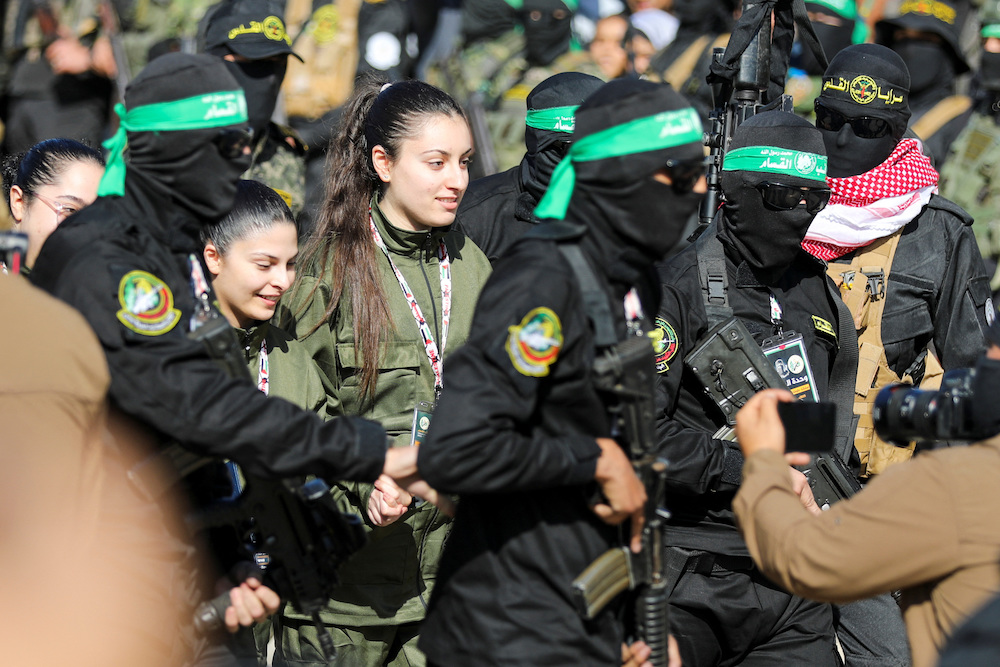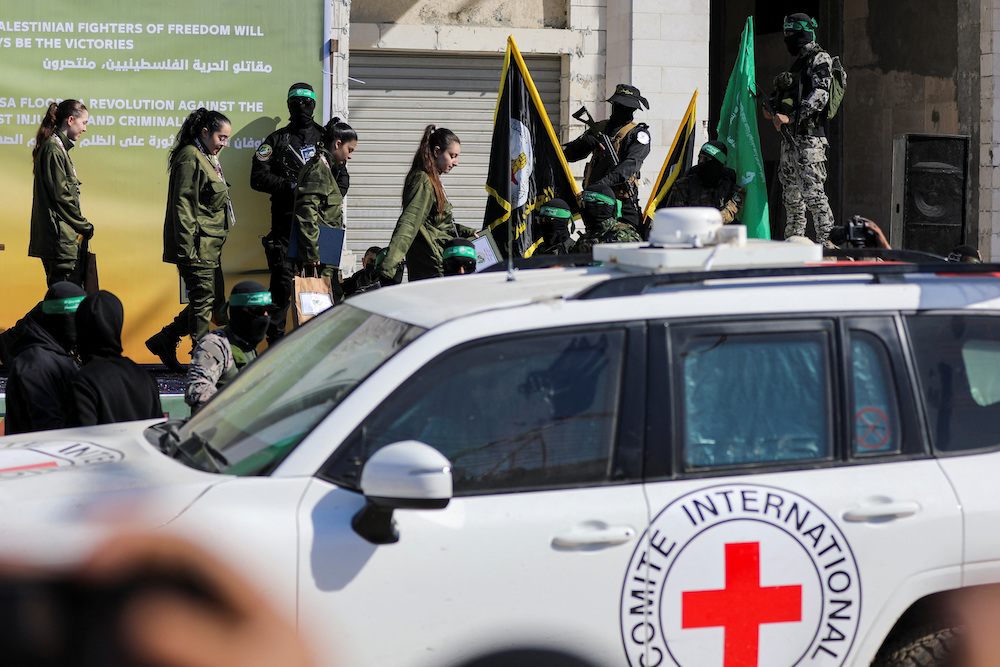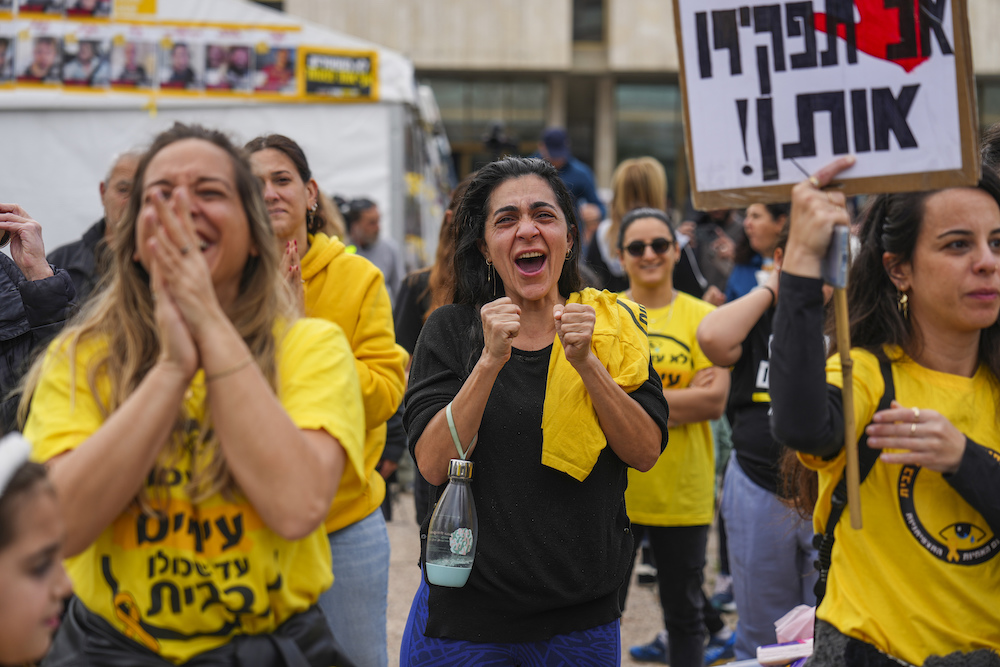MOSUL: A senior Iraqi general predicted a relatively easy victory for his forces in the upcoming battle for the Daesh stronghold of Tal Afar as up 2,000 fighters and their families there are “worn out and demoralized.”
Less than one month after declaring victory in the city of Mosul, Iraqi forces are poised to attack Tal Afar, which is around 40 km to the west of Mosul, in what will be the next major battle against the militants.
“I don’t expect it will be a fierce battle even though the enemy is surrounded,” Maj. Gen. Najm Al-Jabouri told Reuters in an interview.
Jabouri, a key battlefield commander, said the fight would be simple compared to the nine months of gruelling urban combat in Mosul, which took a heavy toll on Iraqi forces.
“The enemy is very worn out,” said Jabouri, who was mayor of Tal Afar when it was overrun by insurgents more than a decade ago. “I know from the intelligence reports that their morale is low,” the general added.
The city, with about 200,000 residents before falling to Daesh, experienced cycles of sectarian violence between rival groups after the US-led invasion of Iraq in 2003 and produced some of Daesh’s most senior commanders.
It has also become the focus of a wider regional struggle for influence. Turkey, which claims affinity with Tal Afar’s predominantly ethnic Turkmen population, opposes the involvement of Shiite paramilitary groups fighting with Iraqi forces.
Jabouri estimated there were between 1,500 and 2,000 militants left in Tal Afar. The figure may include some family members who support them.
“It’s a large number, but the terrain is favorable (to Iraqi forces),” Jabouri said. Only one part of the city, Sarai, is comparable to Mosul’s Old City, where Iraqi troops were forced to advance on foot through narrow streets. The rest of Tal Afar can be navigated in tanks and armored vehicles.
Iraqi general sees easy victory over Daesh in Tal Afar
Iraqi general sees easy victory over Daesh in Tal Afar

‘We cannot forget Sudan’ amid ‘hierarchy of conflicts’: UK FM

- David Lammy: ‘If this was happening on any other continent there would be far more outrage’
- About half of Sudan’s population face acute food insecurity, according to UN
LONDON: The humanitarian catastrophe in Sudan must not be forgotten amid a “hierarchy of conflicts” in the world, the UK’s foreign secretary has warned.
Writing in The Independent, David Lammy called for renewed international attention on the 21-month-long civil war. The humanitarian disaster from the war will be “one of the biggest of our lifetime,” he said.
Since the conflict began in April 2023, almost 4 million people have fled Sudan and fighting has killed more than 15,000, according to conservative estimates.
Lammy visited a refugee camp for displaced Sudanese in neighboring Chad this week. “I bore witness to what will go down in history as one of the biggest humanitarian catastrophes of our lifetimes,” he said.
“The truth no one wants to admit is that if this was happening on any other continent — in Europe, in the Middle East, or in Asia — there would be far more attention from the media — far more outrage. There should be no hierarchy of conflicts, but sadly much of the world acts as if there is one.”
About half of Sudan’s population — more than 24 million people — face acute food insecurity, the latest UN figures show.
The Sudanese Armed Forces and the Rapid Support Forces remain locked in a battle for control of the country and its resources.
Lammy praised the work of the country’s neighbors — including Egypt, Chad and South Sudan — in helping to manage the crisis.
The UN high commissioner for human rights, Volker Turk, warned last week that the war is taking an “even more dangerous turn for civilians.”
On Thursday, the UN Human Rights Office reported that about 120 civilians were killed and more than 150 injured in drone attacks across the city of Omdurman.
Lammy said: “The world cannot continue to shrug its shoulders. There can be no hierarchy of suffering. We cannot forget Sudan.”
The UK has pledged $282 million in aid to almost 800,000 displaced people in Sudan. The funding will supply emergency food assistance and drinking water, among other relief.
Israel blocks Gazans’ return to territory’s north unless civilian woman hostage freed

- ‘Israel will not allow the passage of Gazans to the northern part of the Gaza Strip until the release of civilian Arbel Yehud’
JERUSALEM: Israel said on Saturday it would block the return of displaced Palestinians to their homes in northern Gaza until civilian woman hostage Arbel Yehud is released.
“Israel will not allow the passage of Gazans to the northern part of the Gaza Strip until the release of civilian Arbel Yehud, who was supposed to be released today, is arranged,” Prime Minister Benjamin Netanyahu’s office said.
Israeli military spokesman Rear Admiral Daniel Hagari said, “Hamas did not comply with the agreement on its obligation to return civilian females first.”
Two Hamas sources said that Yehud was “alive and in good health.”
A Hamas source said that she will be “released as part of the third swap set for next Saturday,” February 1.
Earlier on Saturday four Israeli women soldiers held captive in Gaza were released by Hamas and Islamic Jihad.
Hamas frees four Israeli hostages in second swap of Gaza deal

- Swap in keeping with a ceasefire agreement aimed at ending war in Gaza
- Hamas said 200 prisoners will be freed on Saturday as part of the exchange
JERUSALEM/CAIRO/GAZA: The Palestinian militant movement Hamas released four female Israeli soldier hostages on Saturday, in return for some 200 Palestinian prisoners, in keeping with a ceasefire agreement aimed at ending the 15-month-old war in Gaza.
The four were led onto a podium in Gaza City amid a large crowd of Palestinians and surrounded by dozens of armed Hamas men. They waved and smiled before being led off, entering ICRC vehicles and being transported to Israeli forces.
The soldiers — Karina Ariev, Daniella Gilboa, Naama Levy and Liri Albag — were all stationed at an observation post on the edge of Gaza and abducted by Hamas fighters who overran their base during the Hamas attack on Israel on Oct. 7, 2023.

Their parents clapped and cried out in joy when they saw them on screen, watching the handover live from a nearby military base across the border. In Tel Aviv, hundreds of Israelis gathered at the so-called Hostages Square, crying, embracing and cheering as it was aired on a giant screen.
They were reunited with their family soon after, according to the military and will be taken to a hospital in central Israel, the Israeli Health Ministry said.
But the joy in Israel was clouded by disappointment after a female civilian hostage who was expected to be freed on Saturday, was not. Arbel Yehud, 29, was abducted with her boyfriend from their home in Kibbutz Nir Oz, on Oct. 7, 2023.
An Israeli military spokesman said it was a breach of the truce, while Hamas said it was a technical issue. A Hamas official said the group had informed mediators that she was alive and will be released next Saturday.

Israeli Prime Minister Benjamin Netanyahu said that Palestinians in Gaza will not be allowed to cross back to the northern part of the territory until the issue is resolved.
Hundreds of thousands of Palestinians had been displaced from northern Gaza during the war and many were expecting to return from Sunday.
A Palestinian official said that the mediators were working on resolving the matter.
PRISONERS
Hamas said 200 prisoners will be freed on Saturday as part of the exchange. They include convicted militants serving life sentences for their involvement in attacks that killed dozens of people. Around 70 are set to be deported, Hamas said.
Buses carrying the prisoners were seen departing from Ofer military prison in the occupied West Bank, soon after the Israeli hostages were freed.
Saturday’s planned exchange will be the second since a ceasefire began on Jan. 19 and Hamas handed over three Israeli female civilians in exchange for 90 Palestinian prisoners.
The ceasefire agreement, worked out after months of on-off negotiations brokered by Qatar and Egypt and backed by the United States, has halted the fighting for the first time since a truce that lasted just a week in November 2023.
In the first six-week phase of the deal, Hamas has agreed to release 33 hostages, including children, women, older men and the sick and injured, in exchange for hundreds of Palestinian prisoners in Israeli jails, while Israeli troops pull back from some of their positions in the Gaza Strip.
In a subsequent phase, the two sides would negotiate the exchange of the remaining hostages, including men of military age, and the withdrawal of Israeli forces from Gaza, which lies largely in ruins after 15 months of fighting and bombardment.
After Saturday’s release, 90 hostages remain in Gaza, according to Israeli authorities, who have declared around a third of them dead in absentia.
Families of hostages who are not included in the first phase are concerned that the ceasefire will break down before it reaches the next stages and that their loved ones will be left behind.

Israel launched its campaign in Gaza following the Oct. 7 Hamas attack, when militants killed 1,200 people and took more than 250 hostages to Gaza, according to Israeli tallies. Since then, more than 47,000 Palestinians have been killed in Gaza, according to health authorities there.
Israel has lost more than 400 soldiers in Gaza combat. Hamas has not revealed how many fighters it has lost. Israel estimates that more than a third of Gaza’s death toll is militants.
Lebanon army accuses Israel of ‘procrastination’ in ceasefire withdrawal

BEIRUT: Lebanon’s army accused Israel of procrastinating in withdrawing troops from south Lebanon as required under a ceasefire that ended the war with Hezbollah, a day after Israel said its forces would remain beyond a Sunday deadline for their departure.
The Lebanese army, in a statement issued on Saturday, also urged Lebanese residents to wait before heading into the border region, citing the presence of mines and unexploded Israeli ordnance.
Under the US-brokered agreement, which took effect on Nov. 27, Hezbollah weapons and fighters must be removed from areas south of the Litani River and Israeli troops should withdraw as the Lebanese military deploys into the region, all within a 60-day time frame, meaning by Sunday at 4 a.m. (0200 GMT).
Israeli Prime Minister Benjamin Netanyahu’s office said on Friday the terms had not been fully enforced by the Lebanese state. The White House said a short, temporary ceasefire extension was urgently needed.
The US-backed Lebanese army said it had continued to implement the plan to strengthen its deployment south of the Litani River since the ceasefire came into effect.
“Delays occurred in a number of the phases as a result of procrastination in the withdrawal by the Israeli enemy, which complicated the mission of the army’s deployment,” the statement said. The army “maintains its readiness to complete its deployment as soon as the Israeli enemy withdraws,” it added.
The ceasefire ended more than a year of hostilities which were triggered by the Gaza war and peaked in a major Israeli offensive against the Iran-backed Hezbollah, which uprooted more than a million people in Lebanon.
The Israeli government has not said how much longer its forces might remain in south Lebanon, where the Israeli military says it has been seizing Hezbollah weapons and dismantling infrastructure used by the Shiite armed group.
Hezbollah, which suffered major blows in the war, said on Thursday that any delay of Israel’s withdrawal would be an unacceptable breach of the deal and put the onus on the Lebanese state to act. Hezbollah said the state would have to deal with such a violation “through all means and methods guaranteed by international charters.”
Israel said its campaign against Hezbollah aimed to secure the return home of tens of thousands of people forced by Hezbollah rocket fire to leave their homes in northern Israel.
Yemen’s Houthi rebels unilaterally release 153 war detainees, Red Cross says

- However, the release follows the Houthis detaining another seven Yemeni workers from the United Nations
DUBAI: Yemen’s Houthi rebels unilaterally released 153 war detainees Saturday, the International Committee of the Red Cross said.
The Houthis had signaled Friday night they planned a release of prisoners, part of their efforts to ease tensions after the ceasefire in the Israel-Hamas war in the Gaza Strip.
However, the release follows the Houthis detaining another seven Yemeni workers from the United Nations, sparking anger from the world body.
The Red Cross said it “welcomes this unilateral release as another positive step toward reviving negotiations” over ending the country’s long-running war.

















